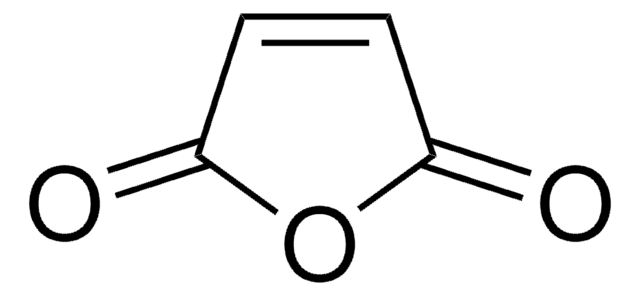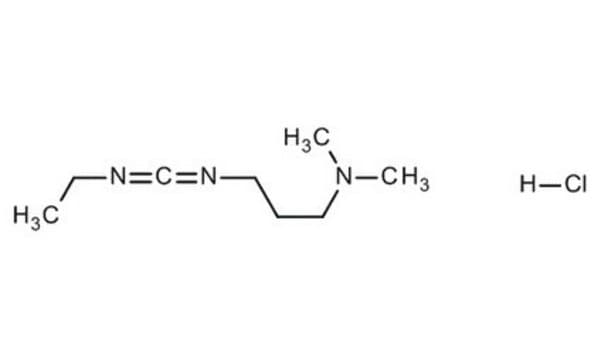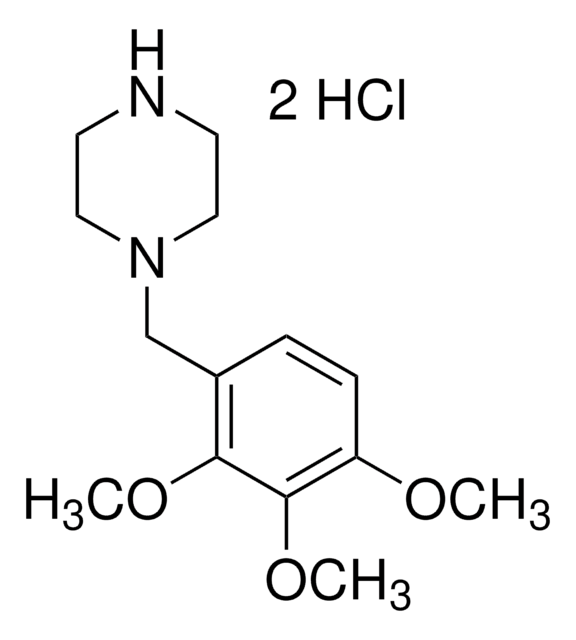91445
10,12-Tricosadiynoic acid
≥98.0% (GC)
Synonym(s):
Tricosa-10,12-diynoic acid
Sign Into View Organizational & Contract Pricing
All Photos(1)
About This Item
Empirical Formula (Hill Notation):
C23H38O2
CAS Number:
Molecular Weight:
346.55
Beilstein:
1880414
MDL number:
UNSPSC Code:
12352100
PubChem Substance ID:
NACRES:
NA.22
Recommended Products
Quality Level
Assay
≥98.0% (GC)
form
crystals
storage condition
protect from light
mp
56-60 °C
functional group
carboxylic acid
SMILES string
CCCCCCCCCCC#CC#CCCCCCCCCC(O)=O
InChI
1S/C23H38O2/c1-2-3-4-5-6-7-8-9-10-11-12-13-14-15-16-17-18-19-20-21-22-23(24)25/h2-10,15-22H2,1H3,(H,24,25)
InChI key
DIEDVCMBPCRJFQ-UHFFFAOYSA-N
Looking for similar products? Visit Product Comparison Guide
General description
10,12-Tricosadiynoic acid, also known as Tricosa-10,12-diynoic acid, is a monomeric amphiphilic diacetylene fatty acid characterized by long paraffinic chains on both sides of the diacetylene moiety. This compound is often used in the synthesis of polymerizable monolayers and Langmuir-Blodgett multilayers.
Application
- Acid-responsive color transition in polymer assemblies: 10,12-Tricosadiynoic acid is employed in the development of acid-responsive polydiacetylene-Na(+) assemblies, showcasing a unique red-to-blue color transition. This property is significant for applications in smart sensors and visual indicators in various industrial processes (Saymung et al., 2024).
- Colorimetric sensing capabilities: The synthesis of polydiacetylene vesicles incorporating 10,12-Tricosadiynoic acid demonstrates their utility as colorimetric sensors. This application is particularly valuable in the detection of microbial peptides, contributing to advancements in food safety and pharmaceutical analysis (Yadav and Tiwari, 2021).
Storage Class Code
11 - Combustible Solids
WGK
WGK 3
Flash Point(F)
Not applicable
Flash Point(C)
Not applicable
Personal Protective Equipment
dust mask type N95 (US), Eyeshields, Gloves
Choose from one of the most recent versions:
Already Own This Product?
Find documentation for the products that you have recently purchased in the Document Library.
Customers Also Viewed
Max Weston et al.
Analytica chimica acta, 1148, 238190-238190 (2021-02-01)
The incorporation of colorimetric sensors as quality indicators in food packaging is an exciting new area of research that could improve food management. The standard approach, however, demands a reliable interface between the sensor and the food and risks food
Solid-state polymerization of tricosa-10, 12-diynoic acid
Tieke B, et al.
Journal of Materials Science, 17, 1156-1166 (1982)
Lars Hoff et al.
Journal of surfactants and detergents, 14(4), 585-593 (2011-10-01)
The ultrasound contrast agents Echovist(®) and Levovist(®) (Bayer AG, Schering AG, Germany) are based on the release of gas bubbles from milled α-d-galactose. In diagnostic ultrasound, for this class of contrast agents, there is a need for prolonged contrast duration.
Roberto Diego Ortuso et al.
Soft matter, 13(8), 1728-1736 (2017-02-07)
We have demonstrated colorimetric and fluorescence detection of a peptide, melittin, based on polydiacetylene (PDA) made of 1,2-bis(10,12-tricosadiynoyl)-sn-glycero-3-phosphocholine (DC(8,9)PC). The PDA used in this work has a phosphocholine headgroup, which mimics peptide-cell membrane interactions better than the conventional PDAs with
Sofiya Kolusheva et al.
Sensors (Basel, Switzerland), 12(5), 5572-5585 (2012-07-11)
Non-invasive detection and monitoring of lethal diseases, such as cancer, are considered as effective factors in treatment and survival. We describe a new disease diagnostic approach, denoted "reactomics", based upon reactions between blood sera and an array of vesicles comprising
Our team of scientists has experience in all areas of research including Life Science, Material Science, Chemical Synthesis, Chromatography, Analytical and many others.
Contact Technical Service











